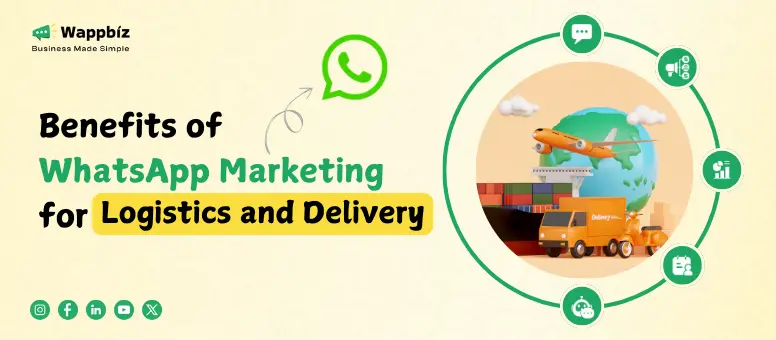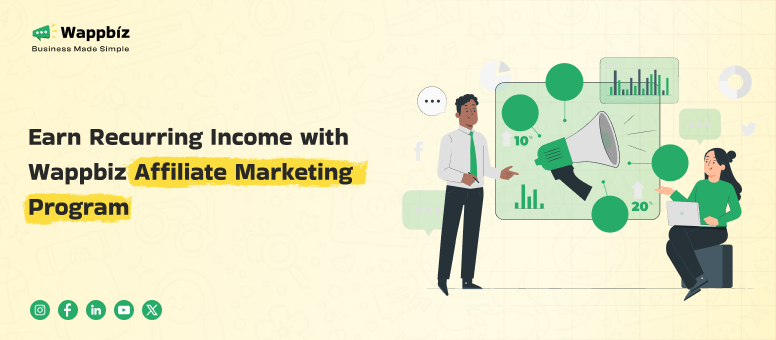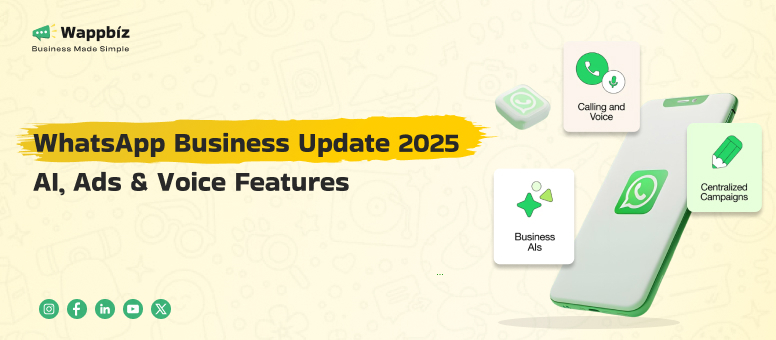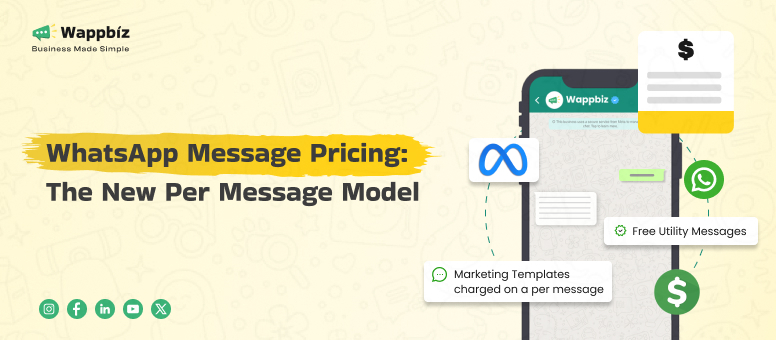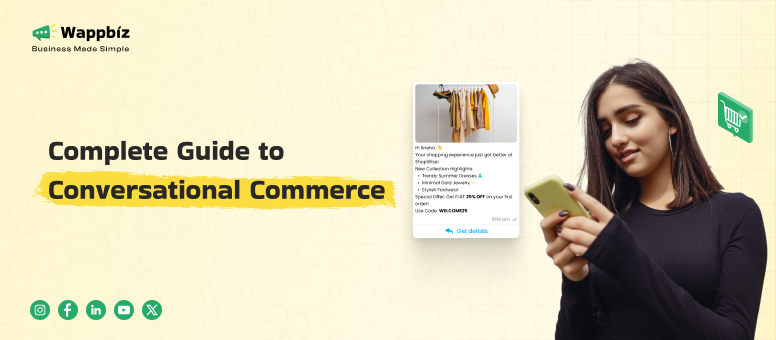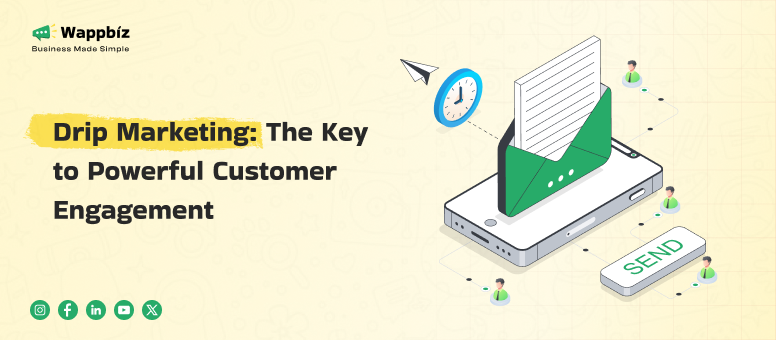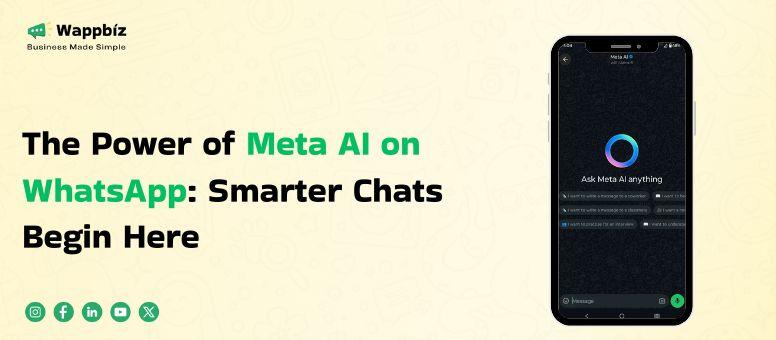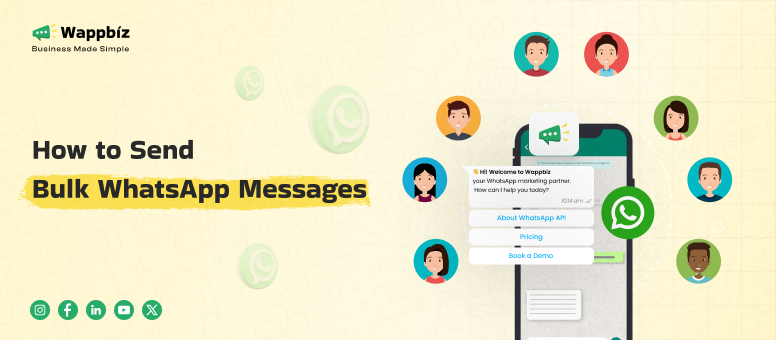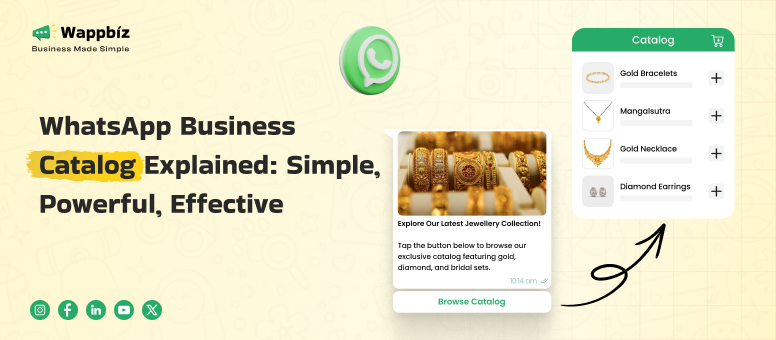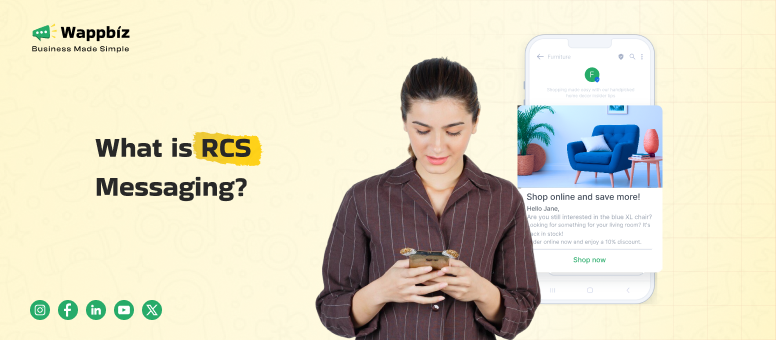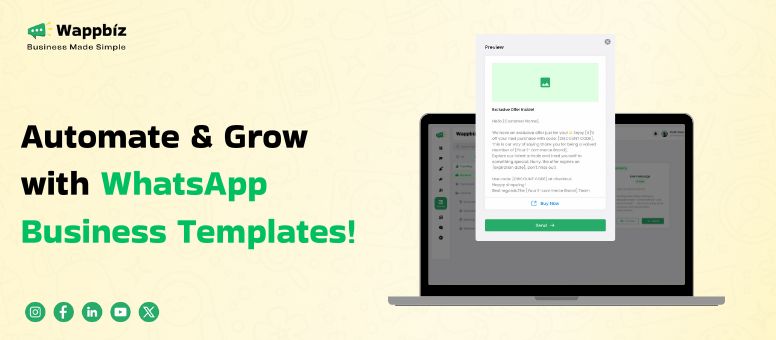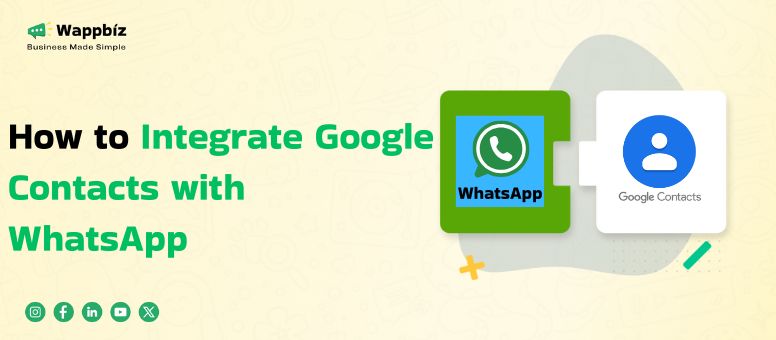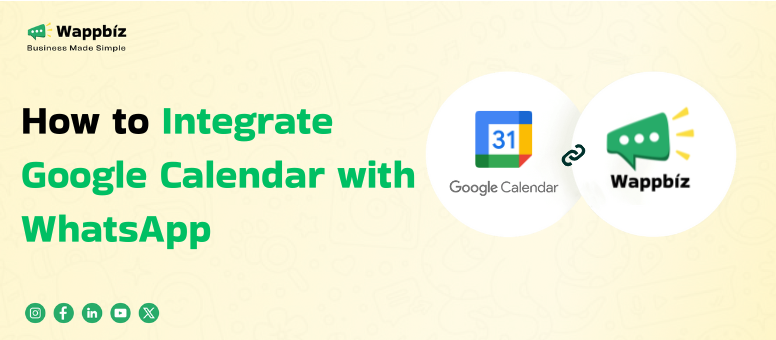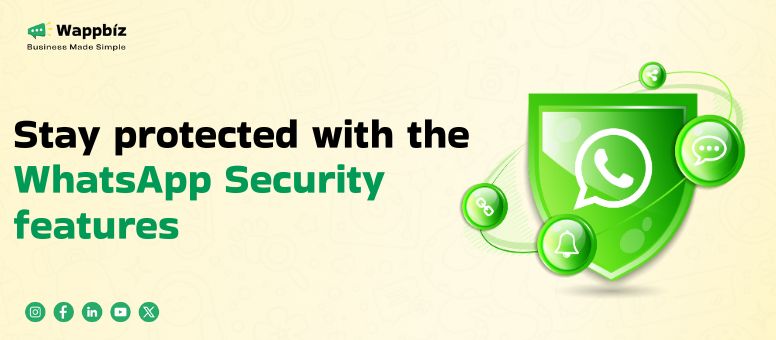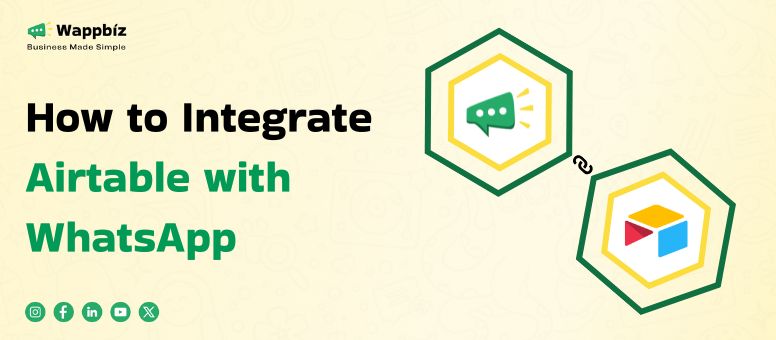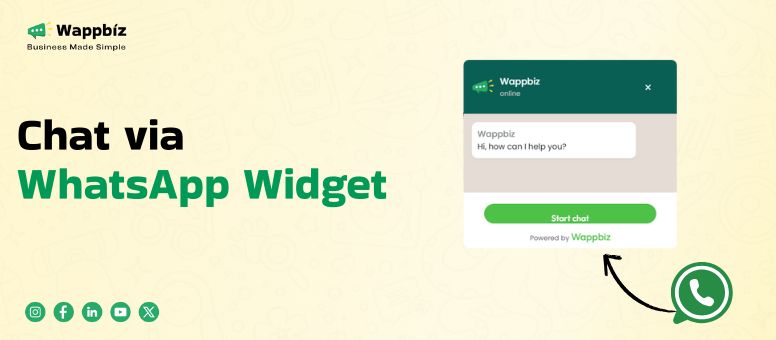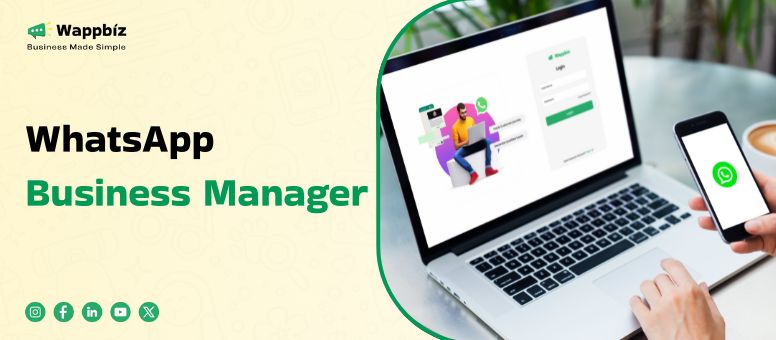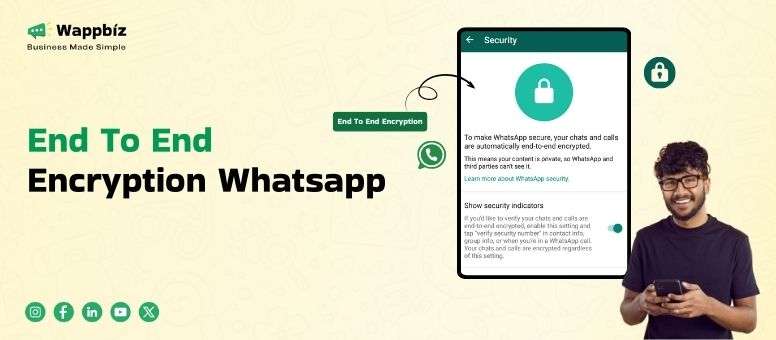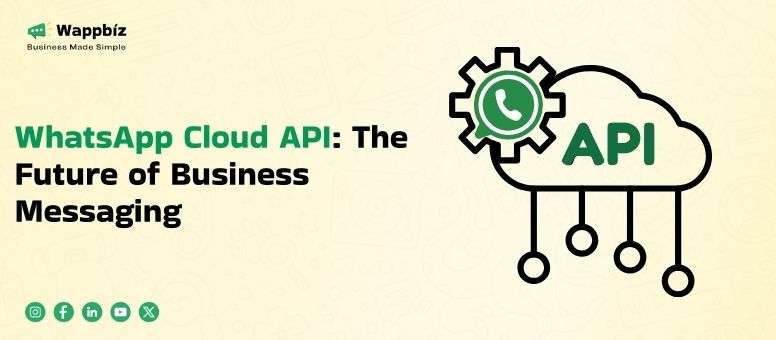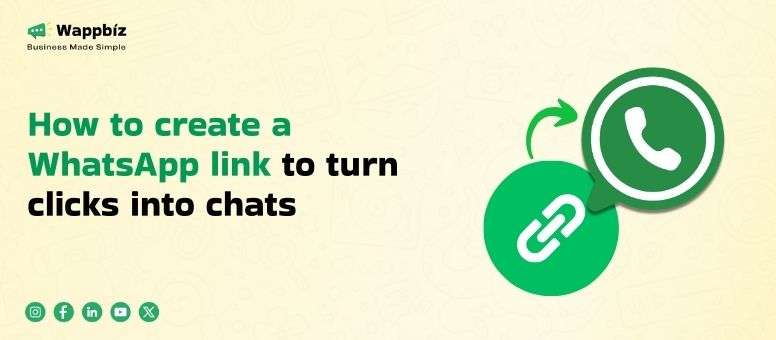Imagine a shipping service with real-time shipment updates, instant delivery status notifications, and 24/7 support, all via a preferred messaging application. As the world thrives on speed and accuracy, traditional communication methods simply are not enough for most customers today. WhatsApp marketing offers the simplest, fastest, and most efficient way to manage deliveries and communicate with clients for logistics and delivery. Businesses can leverage WhatsApp to foster trust within their organization.
This implies that logistics companies have the ability to automate processes using tools such as the WhatsApp API. This enables them to communicate effectively, keep everyone informed at every stage, deliver more efficiently, and gain everyone’s support through the WhatsApp Business API. Additionally, WhatsApp Automation provides a functional solution for tracking updates using WhatsApp chatbots, ensuring maximum transparency. Are you curious about Benefits of WhatsApp Marketing for Logistics and Delivery Services? Let’s explore.
Why Logistics and Delivery Need Effective Marketing Solutions?
In the competitive and time-sensitive domain of logistics and delivery, customers seek real-time information about their consignment and a precise estimated time of arrival (ETA). This will swiftly expose the shortcomings of traditional marketing and communication channels, leading to bottlenecks and reduced customer satisfaction. Logistics companies can utilize WhatsApp marketing, which offers a solution for automating notifications, tracking, and instant support. WhatsApp Business API and WhatsApp Chatbots enable logistics companies to automate processes, increase customer interaction, and gain efficiency, all at a reduced cost with higher service quality.

Top 20 Benefits of WhatsApp Marketing for Logistics and Delivery services
1. Real-time shipment tracking notifications
Logistics companies can provide WhatsApp API real-time tracking updates to their customers regarding their shipments.
For example,
The customer receives a WhatsApp message with a track and trace link indicating the precise location of their parcel when a package leaves the warehouse. Offering real-time visibility not only gets customers to feel addressed about the status of their deliveries but also reduces inquiries regarding where their orders are. Such transparency fosters trust; customers know exactly what is going on during the course of delivery.
2. Automated Delivery Alerts
With WhatsApp Automation, logistics firms can automate alerts when a package is on its way or has reached the destination.
For example,
The customer receives a message with his approximate delivery time as soon as the driver picks up the package. The customer receives a notification once the package arrives. This initiative aims to keep customers informed about their delivery times, ensure their presence for the delivery, and reduce the number of missed deliveries, thereby enhancing their overall experience.
3. Chatbots For 24/7 Customer Support
With WhatsApp chatbots, logistics firms can provide 24/7 assistance for customer queries, infusing them with readiness.
For example,
If a client wants to inquire about his delivery status in the night hours, he needs to ask the chatbot, and there will be an instant reply from it. This means that they do not rely on humans for every little question, and therefore, customers always get the support in a timely manner, which boosts customer experience as well as trust in the company.
4. Personalized Service Updates
Logistics companies can tailor their service updates for customers with the WhatsApp Business API.
For example,
A customer who consistently sends packages to the same locations could receive personalized delivery estimates based on past experiences. By leveraging this level of personalization, companies can enhance customer interaction while also showcasing their care in providing a service that caters to individual requirements, allowing clients to feel appreciated.
5. Automated Pickup Reminders
Logistics companies can automate pick-up reminders through WhatsApp Automation to ensure customers are ready for the courier’s arrival.
For example,
A customer receives a reminder message with preparation steps one day prior to their pickup. By automating this process, we decrease the likelihood of missed pickups and guarantee a smooth experience for both the consumer and the service provider.
6. Immediate Notification of Delivery Confirmation
During the delivery of a package, logistics firms can make use of the WhatsApp API to send proof of delivery notifications to their customers instantly.
For example,
Upon completion of a delivery, the customer receives a message containing a photo of confirmation and the signature of the individual who received the package. This instant validation creates a higher level of trust, increases the transparency of transactions, and enables you to settle disputes faster, all contributing to customer satisfaction.
7. Streamline Order Management for Clients
Logistics firms can now utilize the WhatsApp Business API, which enables clients to view all of their orders in a single view, particularly when they frequently place multiple purchase orders.
For example,
A business managing multiple orders with multiple shipments could receive a single summary message detailing the status of each order. With this kind of centralized communication, clients can start their logistics operations and get the information they need about their movements. This way, they can track and finalize shipping on a single platform instead of having to switch between several.
8. Live Updates for Route Optimization
Logistics firms can send real-time updates to delivery drivers about optimized routes through WhatsApp marketing.
For example,
If there is a lot of traffic on a planned route, the driver will get a notification on their WhatsApp, providing them with a suggested detour. Such real-time communication helps avoid delays and ensures the timely delivery of products to customers, minimizing interruptions caused by inventory clerks finding items or drivers stuck in traffic, as well as helping improve your customer satisfaction levels by avoiding late deliveries.
9. Automated Delivery Feedback Collection
With WhatsApp automation, businesses can easily reach out to customers after they receive their deliveries and get responses.
For example,
When a customer delivers your package, they will receive a series of brief surveys asking about their experience. Logistics companies can then use this feedback in real time to identify areas for improvement and prove to customers that their opinions matter. Efficiently collecting feedback can help in increasing service quality as well as instilling loyalty among customers.
10. Tailored delivery options for customers
Logistics companies can provide flexible delivery options to their customers directly through the WhatsApp Business API.
For example,
If a customer expresses a preference for evening delivery, they will receive a message detailing all available time slots. The end user can tailor this flexibility to their specific needs, making it easier to plan deliveries and eliminating overcrowded deliveries that often result in missed packages or vulnerable targets for thieves.
11. Real-time notification for delays or changes
Logistics companies can instantly inform customers about unexpected delays or changes in the delivery date through the WhatsApp API.
For example,
When adverse weather affects delivery times, the company notifies customers with a message outlining the situation and providing a revised estimated time of arrival. This method establishes clear expectations, fosters trust, and demonstrates to the customers the company’s transparency and ongoing updates throughout the process.
12. Personalized promotional offers for repeat customers
Logistics companies can send non-briefed loyal customers personalized offers with WhatsApp marketing.
For example,
A client who frequently purchases from your provider could receive a discount code for their subsequent dispatch productivity via WhatsApp. Such targeted interaction not only rewards customers for their loyalty but also plays a part in repeat orders, hence fortifying the relationship with the clients of the logistics company.
13. Automated Payment Reminders For COD orders
Logistics companies can use WhatsApp automation to remind customers to pay before dispatching COD orders.
For example,
Customers receive a notification the day prior to delivery reminding them to have their payment method ready. This automated reminder benefits not only the customer but also the logistics company in having a smooth transaction process, fewer chances of failed deliveries, and reliable payment collection.
14. Centralized Order Management for Enterprise
Business API has given companies the ability to handle bulk orders and management from one centralized interface.
For example,
A retail client who ships hundreds of packages can track all their shipments in real time over a single WhatsApp channel. Such an instant communication approach enables the businesses to control their logistics operation in a better manner and reduces the need for other communicating tools, as they can directly get updates within the app.
15. Automated invoices and receipts
Logistics companies can immediately send digital invoices and receipts after a delivery via WhatsApp Automation.
For example,
Upon delivery of a package, WhatsApp instantly sends an invoice to the customer, providing instant access to their records. Eliminating the paper trail saves time, minimizes admin work, and provides a simple way for customers to track their transactions, building trust and efficiency.
16. Live Notifications for High Value Shipments
Logistics companies can use the WhatsApp API to update customers about their high-value shipments in real time.
For example,
If a customer is sending high-value electronics, they receive notifications each time the shipment passes through one of the steps in the delivery process. Customers feel that the service is handling their high-value goods with care and closely monitoring them, thanks to the additional transparency.
17. Easier returns and reverse logistics
WhatsApp chatbots streamline the return process by guiding customers through each step of reverse logistics.
For example,
If a customer wants to return a product, the chatbot provides instructions on packaging and scheduling a pickup. This automated support simplifies the return experience, ensuring customers can easily and quickly manage returns, which enhances their satisfaction and reduces the workload for customer service teams.
18. Immediate Driver Support and Communication
Delivery drivers in logistics companies can use the WhatsApp Business API to communicate instantaneously and address their queries.
For example,
In the case of a vehicle breakdown or any other issue faced by a driver, they can message support on WhatsApp and get instant assistance. This helpful communication between driver and customer also reduces hold-ups, allows for immediate resettlement of issues, and ensures seamless delivery operations.
19. Managing bulk orders for business customers
WhatsApp marketing allows logistics firms to provide business clients with the tracking of bulk orders on the go.
For example,
A retailer shipping multiple packages would receive all the package updates in a single WhatsApp text. It assists business clients in better tracking their logistics activities, providing them with all the updated information necessary for seamless supply chain management.
20. Enhanced Customer Engagement
Logistics companies can use the WhatsApp Business API to follow up on successful deliveries and send personalized thank-you notes.
For example,
A regular customer could receive a note saying, “Thanks for your service; here’s your discount code on the next shipment.” This strengthens the bond between a brand and its customers, creates customer loyalty because it encourages them to return for more offerings, and also rewards them with gratitude.
Conclusion
Logistics companies can efficiently automate communication through WhatsApp marketing to provide real-time updates and personalized services. Using Wappbiz, logistics and delivery companies can optimize their process, improve customer satisfaction rates, and maintain a strong association with clients through a smooth flow of information.
Do you want to have more efficiency for your logistics? Check Wappbiz to automate and simplify your delivery communications.

FAQs
How can WhatsApp marketing help the logistics and delivery industry?
With WhatsApp marketing, logistics companies can reach out to clients directly and offer timely updates on deliveries, along with tracking and delivery support for a hassle-free experience.
Does WhatsApp marketing help logistics services better interact with customers?
Absolutely! Businesses can send real-time tracking updates, delivery notifications, and personalized messages over WhatsApp, allowing companies to keep their users informed with timely updates.
How does WhatsApp marketing help with tracking and delivery notifications?
Logistics providers can send real-time tracking links, estimated arrival times, and status updates via WhatsApp so the customer knows exactly where their package is at all times.
Is it cost-effective for logistics companies to practice WhatsApp marketing?
Indeed, WhatsApp is the cheap way to switch customer communication and share updates as well as inquiries at lower operating costs.
Does WhatsApp marketing help you in handling delays and rescheduling deliveries?
Definitely! Companies have the ability to notify customers about delays, reschedule deliveries, and provide regular updates about their orders, thereby fostering reliability and satisfaction.
Is it safe to use WhatsApp for customer data in logistics?
Yes. WhatsApp end-to-end encryption guarantees privacy for all client communications and details of delivery.
Does WhatsApp marketing help in generating customer loyalty for logistics services?
WhatsApp allows the logistics company to maintain a positive relationship with their customer by providing accurate updates, instant solutions, & personalized service.
How does WhatsApp marketing assist in obtaining feedback after delivery?
It enables logistics companies to ask for feedback via email after delivery, allowing them to address service quality and customer satisfaction ahead of future orders.
Is WhatsApp beneficial for express delivery options and special service promotions?
Absolutely! Logistics providers can use WhatsApp to inform customers about express options, special handling, and seasonal delivery promotions.
How can WhatsApp marketing improve customer service in logistics and delivery?
Customers can ask any questions about delivery details and other related matters, and instant help will be available, ensuring a stress-free and trustworthy experience.

